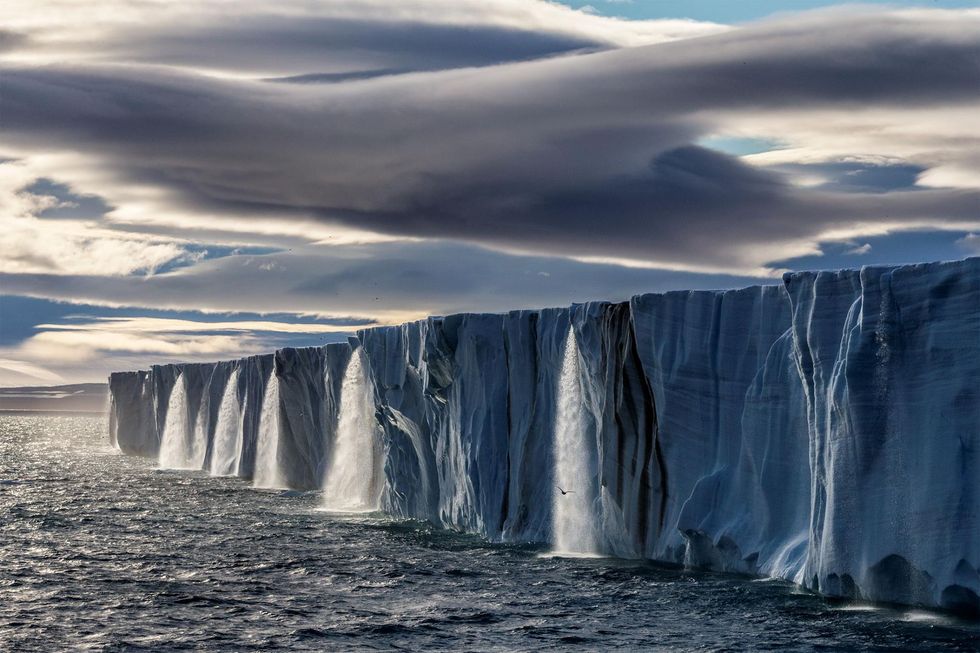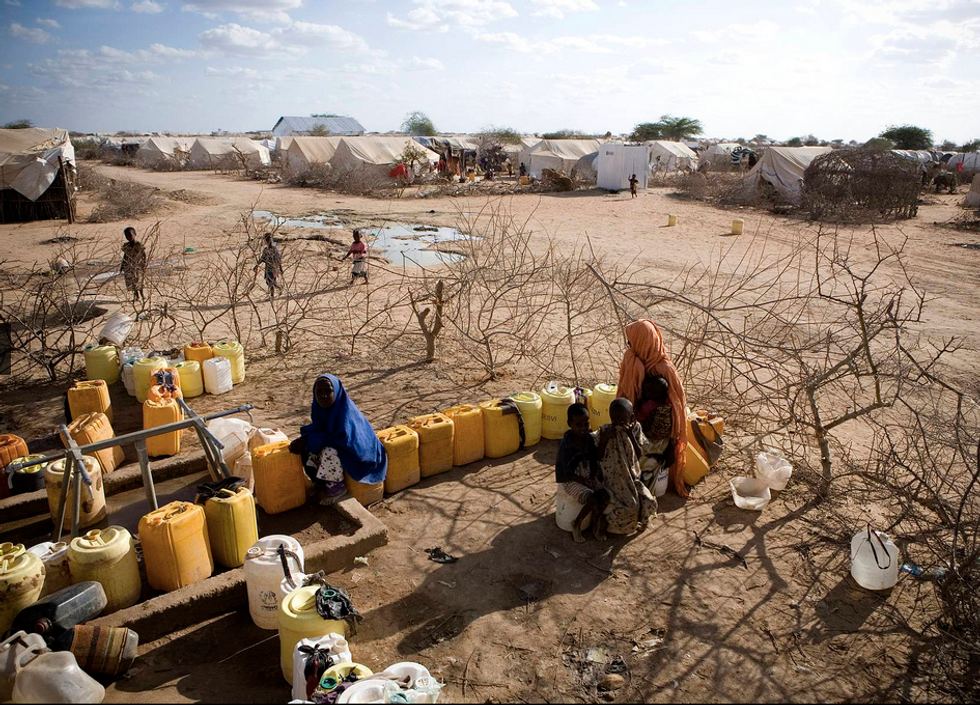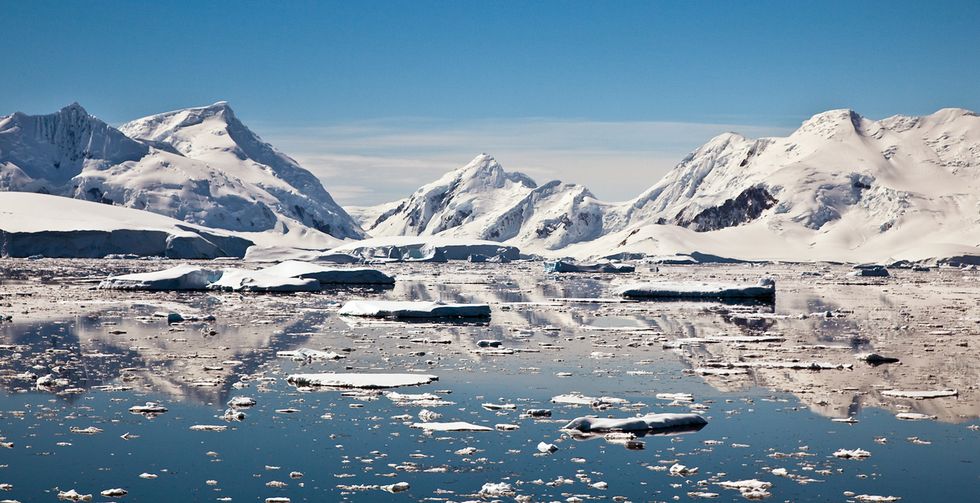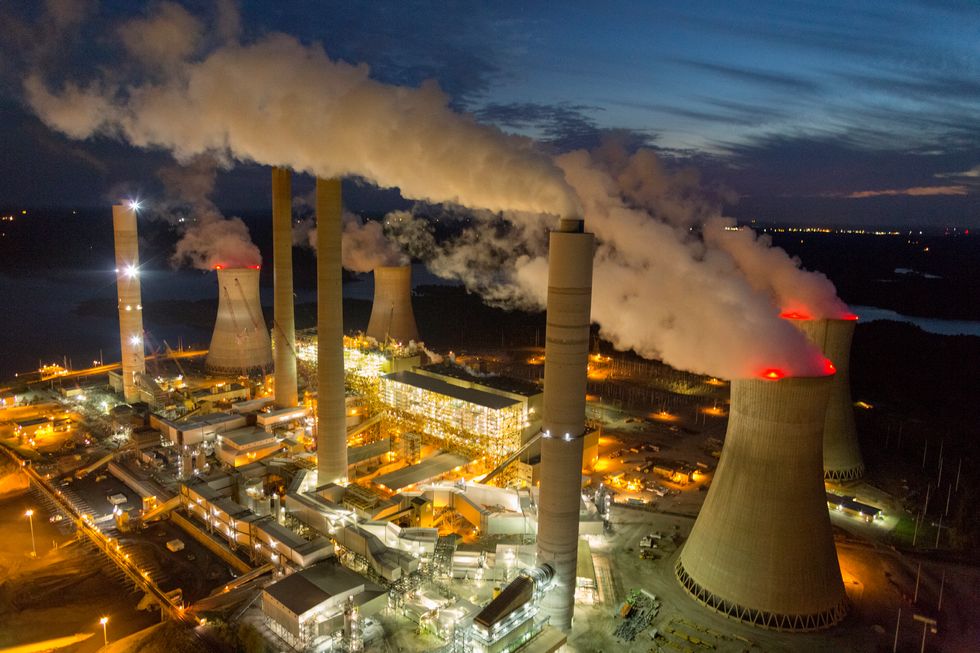Temperatures are starting to drop. The holidays and snowfall are just around the corner. Climate change and global WARMING can be a challenging issue to tackle when your teeth are chattering. Yet, it's still an issue that we need to be aware of even in the colder seasons. There is still a global trend that we shouldn't dust under the rug.
In the midst of a broken world, where does the environment fit in?
There is a lot of debate centered on climate change, especially in today's world. However, what a lot of individuals may not realize is that a plethora of the aspects of climate change are truly heavily supported by scientific evidence. Global warming and Earth's rapidly changing climate has become such a politicized issue, which is rather unfortunate.nThere are many reasons why individuals don't feel obliged to help alleviate the issues that humans have installed upon the Earth. In a world where people don't have access to food, countries are threatened by war, individuals don't have a stable income or families don't have roofs over their heads, the integrity of the planet can seem pretty irrelevant. The pertinent piece of the environmental concern puzzle, however, is that these issues will become of immediate concern for the coming generation. It's extremely easy to brush off an issue that may not directly impact you in your lifetime. That's justified to an extent - This won't hurt me. Why should I care?
Why should you care?
Our society has the tendency to utilize this head-in-the-sand strategy. What happens when our children or grandchildren get hit with the outcome of what generations before have contributed to? Do we care? The fact of the matter is that changes are constantly taking place. You can watch the "vitals" of the planet change over time on NASA's website. You can examine the CO2 levels increasing in our atmosphere; you can see that the global temperature has skyrocketed; you can see the glacial ice sheets melt into near nothingness, and you can see the sea level rising at an alarming rate. Glacial ice has a high albedo, which means that it is reflecting harmful radiation away from our atmosphere and helps to protect the integrity of Earth's atmosphere. When these ice sheets melt, we are left with more water which has a low albedo and thereby absorbs more harmful radiation into our atmosphere. In addition, when that ice melts, water levels rise. Do we care that sea levels have the potential to rise up to 39 inches within the next century? The bigger question may be, do people comprehend what that kind of impact that change would have on our world?
What can really happen?
Three and a quarter feet doesn't seem like that much of a change. People must comprehend just how large our world's water and ocean basins are. If those bodies are rising by that much it causes huge changes in our surrounding environment. The Intergovernmental Panel on Climate Change has published several findings and has made a number of projections about what could happen by 2100 if we continue residing on our planet as we are today. A geology professor at the University of Dayton, Dr. Goldman, summarized some of these findings in a lecture. Some of the most alarming impacts include a coastline retreat that would eliminate 30 coastal cities currently populated by 200 million people. Global climate change can also result in altered weather patterns and more extreme weather conditions that may compromise public safety and health as well as yield heavy economic damage. If there is a global increase in temperature, there is also a potential for a shift in agriculture where fertile fields may start to look more like desert regions, which can cause food disparities as well as economic stress. Global warming can also contribute to more heat-related deaths, a spread of tropical diseases into other climatic regions and an increase in vector-borne diseases.
Are there means of prevention?
It can be rather disheartening and almost depressing to think about the current condition of the planet and where it may be in the near future. Global climate change is a vast issue. Eventually, the planet will not be functioning in the same way that it is today. The changes are occurring at such a rapid pace it is an overwhelming task to try to stop it in its tracks. Our society has made great advances in the right direction to reduce its footprint on our environment. The United States has slowly started plateauing in CO2 emissions. The United States can still make huge advancements in renewable energy, increasing energy efficiency, reducing deforestation and limiting urban sprawl. Newly developed countries such as China, India and Brazil are now starting to become huge contributors to CO2 emissions. It's challenging to combat international issues such as these because the United States developed through the Industrial Revolution and has gone through similar phases those countries are now experiencing. It is hypercritical to say that those nations should not advance and industrialize. However, our society has gained so much knowledge about how to utilize other renewable resources in order to have progression. There are ways that these countries can start to work towards these alternative ways of energy production in order to reduce the overall compromising of the planet's well-being.
What if we are past the point of prevention?
There are certainly prevention methods in order to slow the pace that humans are impacting the planet. There are a number of ways that countries and individuals can reduce their carbon footprint. Increased research in this field is absolutely crucial to understanding the breadth of the issue and how to make changes in it. However, the changes are occurring at such a rapid pace that it may be time to start thinking of adaptation methods in addition to research and prevention efforts. Adaptation is often much easier for those in a higher socioeconomic class. For example, individuals that are in a particularly at-risk area and need to relocate, need the funds to pick up and move to another region. Once again, global warming often becomes a highly political issue. The debate shouldn't be about whether or not there is an issue at hand. There is sufficient scientific evidence that shows there is clearly an issue. The debate comes in how we are supposed to handle the mess that we have put ourselves in.
What can our future hold?
While the future may appear bleak in the realm of global warming and climate change, there are still steps that can be taken at the individual, local, national and global levels. Small efforts should not be entirely discounted. In fact, small changes are often the beginning of larger scale progression. The biggest goal in the discipline of environmental protection should be to further the environmental literacy of today's society so that individuals can understand how large of an issue our world is facing. It is also important for people to understand how they perceive their moral responsibilities in regards to making the best future for children and grandchildren that will be experiencing the direct consequences of global climate change.














 Photo by
Photo by  Photo by
Photo by  Photo by
Photo by 










